Digital Infrastructure Solutions
Security is paramount, but ‘trust’ is more than this. No trust. No Transformation.
Forever relevant
We are driving the transition to a totally trusted digital world through our choice of technology solutions. It’s a living evolution. Always relevant, never standing still, continually reinventing.
It’s why the world’s channel partners need a specialist. Going beyond trust to optimise, scale, flex, connect and orchestrate the digital infrastructures of the global economy.
Browse by network area
Mapped against recognised market categories, each is a specialism for Exclusive Networks with global services and highly developed skills. Alternatively, browse by business challenge.
-
Enterprise Network Firewalls (NGFW)
-
Endpoint Protection Platform (EPP)
-
Endpoint detection and response (EDR)
-
Network access controllers (NAC)
What is it?
NGFWs have evolved beyond the traditional firewall platform to better protect organisations and enable a range of powerful cyber features with far greater control.
Our solutions:


What is it?
Endpoint protection platforms (EPPs) are an essential first line of defence, designed to detect and block malicious threats at device level using a range of capabilities that can identify newly discovered attacks based on the latest known signatures.
Our solutions:

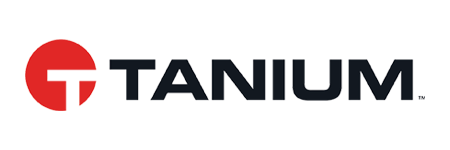
What is it?
Endpoint detection and response (EDR) goes beyond EPP capabilities to detect new malicious threats, prevent attacks, support investigation and remediation of dynamic security incidents and enable proactive threat hunting.
Our solutions:


What is it?
High-performance NAC solutions implement policies for controlling network access by devices and users, without impeding productivity.
Our solutions:

-
Wired & Wireless LAN Access
-
Data Encryption & Protection
-
Identity access management (IAM)
-
Privileged access management (PAM)
What is it?
Wired and wireless LAN access refer to the essential technology enabling high performance, secure, dynamic connectivity to enterprise local area networks.
Our solutions:

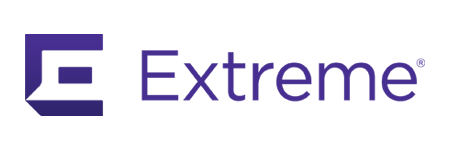

What is it?
Data encryption is a core aspect of cybersecurity strategy, allowing sensitive data to be encoded while at rest or in transit (or both) and only usable by authorised users or machines.
Our solutions:

What is it?
Identity access management (IAM) is the technology that ensures the right people have authenticated access to the right resources at the right time for the right reasons, ensuring good cybersecurity posture and compliance to required standards.
Our solutions:




What is it?
Privileged access management (PAM) ensures that the critical functions of administrators and other privileged users are not compromised and is typically deployed alongside identity access management (IAM) solutions that govern more general users.
Our solutions:




-
IOT/OT
-
Cloud access security brokers (CASB)
-
Application delivery controllers (ADC)
-
DDI (DNS, DHCP, IPAM)
What is it?
The Internet of Things (IoT) is the network of physical objects featuring embedded technology for the purpose of supporting a wide range of applications. OT (Operational Technology) refers to the world of hardware and software that monitors and/or controls industrial equipment, assets and processes – so-called to distinguish it from “information technology” (IT).
Our solutions:

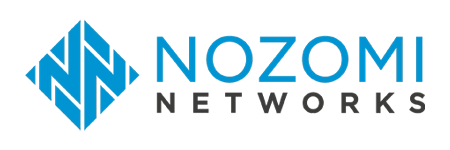
What is it?
CASB is central to cloud security strategy, sitting between cloud users and cloud applications to monitor activity, enforce security policy and enable organisations to enjoy the agility and performance of the cloud at significantly reduced risk.
Our solutions:


What is it?
ADCs are the gatekeepers of application performance, security and resource efficiency that today go beyond application acceleration and load balancing to execute a highly advanced suite of network and security functions.
Our solutions:

What is it?
DDI solutions manage critical core network services in an automated way – secure DNS (domain name system), DHCP (dynamic host configuration protocol) and IPAM (IP access management) – for maximum efficiency and accuracy.
Our solutions:

-
Web application firewall (WAF)
-
Secure access service edge (SASE)
-
Security information and event management (SIEM)
-
User and entity behaviour analytics (UEBA)
What is it?
Web application firewalls protect web applications and APIs against a variety of attacks such as SQL injection and cross-site scripting (XSS), providing a specialised defence mechanism to protect vital web assets.
Our solutions:


What is it?
SASE is a cybersecurity concept, based on the convergence of WAN capabilities and network security functions, that identifies users and devices, applies policy-based security and delivers secure access ‘as a service’ to the application/data.
Our solutions:




What is it?
SIEM solutions’ fundamental role is collecting and analysing all available security-related data – typically very large quantities of great complexity – and producing real-time, prioritised insights for security teams to act upon, and detailed reporting for compliance purposes.
Our solutions:

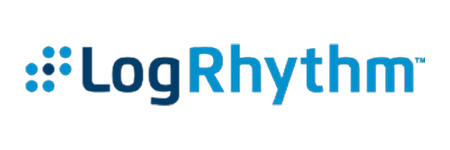

What is it?
UEBA solutions counter insider threats that would otherwise go undetected by applying machine learning technology to identify when users and/or entities deviate from regular behaviour in ways that accurately represent potential security risks.
Our solutions:



-
Security orchestration, automation and response (SOAR)
-
Secure Email Gateways
-
Network detection & response (NDR)
-
Network Packet Brokers
What is it?
SOAR solutions enable organisations to respond to security threats and low-level security incidents without human intervention, complementing cybersecurity teams with an intelligent, automated digital capability that frees up resources for other tasks.
Our solutions:



What is it?
Secure email gateways guard one of the most risk-prone attack vectors – email – by preventing the dissemination of malware, malicious attachments, phishing attacks and unwanted spam, and preserving the integrity of email content intended only for their stated recipients.
Our solutions:

What is it?
Network detection and response (NDR) has evolved from the ‘network traffic analysis’ market category, reflecting the increased sophistication of behavioural analytics and AI to improve threat detection capabilities without compromising the performance of high-performance networks.
Our solutions:


What is it?
Network packet brokers consolidate real-time monitoring information from probes and sensors distributed across the network, optimising the accuracy of security tools with the highest quality data and illuminating any ‘blind-spots’ to provide a comprehensive view of network traffic.
Our solutions:

What is it?
Unified communications equips individual users and teams within organisations with a single platform for all their messaging, video, voice, mobility, conferencing and collaboration needs – for enhanced productivity and a consistent user experience.
Our solutions:
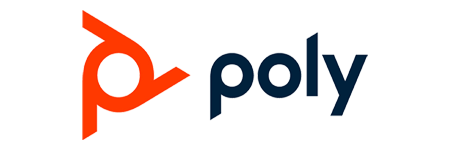
What is it?
Public cloud services offer significant on-demand scale advantages and, unlike ‘private cloud’, are available as commodity services to many multiple customers from a single provider. Choosing the right blend of public vs. private as part of a dynamic, hybrid cloud strategy is a key objective of almost all organisations.
Our solutions:

What is it?
Hyperconverged infrastructure (HCI) is a software-defined, unified system that combines all the elements of a traditional data centre: storage, compute, networking and management.
Our solutions:

What is it?
Backup and recovery are critical to business continuity and disaster recovery, enabling organisations to maintain separately and securely stored copies of any/all relevant data with the ability to use this to continue operating with minimal disruption following a catastrophic event, prolonged crisis, ransomware attack, etc.
Our solutions:

-
Solid state arrays (SSAs)
-
Server Appliances
-
WAN Edge Infrastructure (SD-WAN)
-
Distributed file system (DFS) storage
What is it?
Solid state arrays are shared storage device resources that utilise solid state drive technologies (such as Flash storage) to hold/serve significant quantities of data within a very small form factor and low power consumption compared to – for example – hard disk (HDD) storage.
Our solutions:


What is it?
Server appliances (also virtual server appliances) require minimal configuration because they feature all the necessary applications to operate prior to installation.
Our solutions:



What is it?
SD-WAN provides dynamic, policy-based, application path selection across multiple WAN connections and supports additional services such as WAN optimisation and firewalls – increasingly important as organisations migrate services from the data centre to the edge.
Our solutions:



What is it?
Distributed file system storage uses a single parallel file system to cluster multiple storage nodes together, providing high throughput and capacity in a linear manner and presenting a single namespace and storage pool to provide high-bandwidth data access for multiple hosts in parallel.
Our solutions:

-
Object storage
-
Data centre networking (SDN)
-
Cloud management platforms (CMP)
-
IT Infrastructure Management
What is it?
Distributed file system storage uses a single parallel file system to cluster multiple storage nodes together, providing high throughput and capacity in a linear manner and presenting a single namespace and storage pool to provide high-bandwidth data access for multiple hosts in parallel.
Our solutions:

What is it?
Software-defined networks are those that that separate the control plane from the data/forwarding plane in networking equipment, to enable more automated provisioning and policy-based management of network resources across the enterprise.
Our solutions:
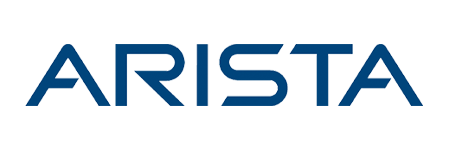

What is it?
The role of cloud management platforms is to manage multi-cloud services and resources with regards to provisioning and orchestration, service request management, inventory and classification, monitoring and analytics, cost management/resource optimisation, cloud migration/backup/DR, and identity, security and compliance.
Our solutions:

What is it?
IT infrastructure management solutions aim to minimise downtime and optimise business productivity by providing a structure for the control of IT resources – hardware, software, networking – across both physical and virtual environments.
Our solutions:

Browse by business challenge
Join us on our mission to drive the transition to a totally trusted digital world. Contact a specialist to discuss your needs. Alternatively, browse solutions by network area.
What is it?
Cyber-attacks are constantly evolving, and attackers are finding increasingly new and inventive ways to infiltrate networks.
As well as more and more data being stolen from companies, larger scale cyber-attacks like WannaCry and Petya/NotPetya are becoming more prevalent as well. Here we introduce a few of our vital vendor solutions designed to keep your business protected and ensure you stay one step ahead of the attackers.
Our solutions:













What is it?
Data is one of the most valuable company assets and whilst robust data security is paramount to all organisations today, cyber-attacks are inevitable and data loss will occur. Cyber-attacks targeting data is a growing challenge especially since the majority of the data stolen has a value and is of use to hackers.
Presented here are the key vendors in data security to support you to stay one step ahead of constantly evolving threats.
Our solutions:










What is it?
Today’s data centres need to be cost-effective, agile and secure as the growing demand on applications and data workloads increase.
With the assumption that attacks are inevitable and that demands for more storage and more workload changes are on the rise here are a few of our carefully chosen vendors who can support the rapid pace of change in the datacentre.
Our solutions:















What is it?
Nearly all the attacks within companies starts with an insider, whether the insider is malicious or compromised the insider is the biggest threat to the network.
Many organisations are shifting their focus to tackling insider threats. Here are a few leading technologies to help you boost your defences.
Our solutions:






What is it?
The Internet of Things brings with it an explosion of data being added to networks, stored and processed and whilst the trend brings opportunities is also carries risk.
The more devices connected to your network the larger the attack surface, therefore visibility is crucial. You cannot secure what you cannot see. View the vendor solutions here which can support you as the number of connected devices continues to grow. The challenge is constantly evolving.
Our solutions:






What is it?
There are many considerations for organisations when they decide to move workloads to the cloud.
What workloads should you migrate first? Do you plan on going fully cloud or adopting a hybrid option initially? How can you keep your data secure and protected in the cloud? How do you ensure that the right individuals have access to the right data at the right time?
Our solutions:










What is it?
More and more companies are making the switch to O365. Exclusive Networks offer a range of vital solutions to ensure you can identify, protect and restrict access to your vital company data while you migrate critical workloads to the cloud. Here we present the market-leading vendors who can support your move to the cloud.
Our solutions:





What is it?
Orchestration is becoming more and more important for companies to utilise as the sprawling tools that clients have can lead to alert fatigue, and solutions that are underutilised. Orchestration solutions package tasks together from different security and networking solutions to optimise workflows.
Automating and orchestrating your network environments can bring business benefits, including efficiency, reductions in operational costs; and allows networks to scale and become more agile and responsive.
Our solutions:





What is it?
You can’t protect what you can’t see.
As data demands increase and more devices are added to networks, they become more complex.
Security is a major concern as network attacks grow and become more sophisticated. As well as the right tools it’s vital to also have greater visibility and intelligence to counteract and mitigate against threats.
Our solutions:









